These are Decree No. 132/2025/ND-CP on the decentralization of authority of two-level local authorities in the field of state management of the Ministry of Science and Technology ; Decree No. 133/2025/ND-CP on decentralization and delegation in the field of state management of the Ministry of Science and Technology to the Provincial People's Committee and the Chairman of the Provincial People's Committee.
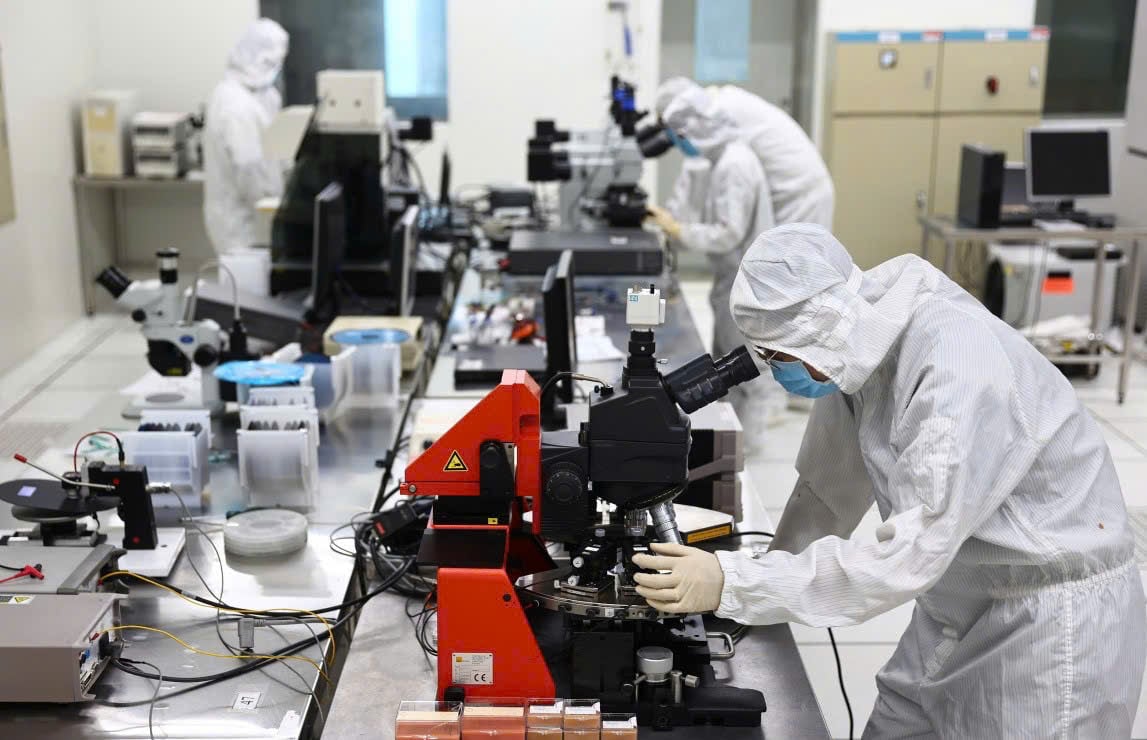
The Decrees have demonstrated a profound reform mindset, reasonably transferring part of the authority from the Central Government to localities, ensuring the principle of "locality does, locality decides, locality is responsible"; at the same time, maintaining the strategic coordination role of the sector management agency, the Ministry of Science and Technology.
Clearly define responsibilities, transparency, effectiveness and efficiency
Decree No. 132/2025/ND-CP dated June 12, 2025, stipulating the delimitation of authority of two-level local governments in the field of state management of the Ministry of Science and Technology, was developed in the context of implementing a two-level local government model (provincial and communal levels), without organizing district-level administrative units with the goal of streamlining the apparatus, improving the effectiveness and efficiency of state management and promoting sustainable socio-economic development.
With the viewpoint of decentralization to serve state management at the local level, the Decree is built on the principle of "locality decides - locality acts - locality is responsible" to fully institutionalize the Party's policies, requirements for innovation in the organization of local government apparatus, in accordance with the two-level model; clearly define responsibilities, no overlap, no omission, ensure normal operation of administrative agencies, no impact on people and businesses; strengthen the effectiveness of state management in the field of science and technology through clearly defining the roles and authorities of commune and provincial authorities.
The main content of the Decree clearly states that the People's Committees at the commune level are authorized to perform 5 groups of tasks in the fields of state management, including: Measurement; quality of products and goods; information technology; providing information on the network environment. Accordingly, the People's Committees at the provincial level are responsible for guiding, inspecting and supervising the People's Committees at the commune level and organizations and individuals participating in the management of investment and use of state budget capital at the district level previously.
Specifically, according to the provisions of Article 4 of the Decree, the People's Committees of communes, wards and special zones (collectively referred to as commune level) have the authority to conduct state inspections of measurement within the locality. The inspection contents include: Measurements, measuring instruments and quantities of pre-packaged goods in circulation on the market. Article 5 stipulates that the People's Committees of communes shall carry out state management of the quality of products and goods in the area under their management. Implementation shall comply with the provisions of Clause 3, Article 33 of Decree No. 132/2008/ND-CP to ensure quality and safety supervision for consumers right from the grassroots level.
Regarding information technology, in Article 6 of the Decree, the Provincial People's Committee is responsible for guiding the Commune People's Committee as well as organizations and individuals in managing investment in information technology applications using state budget capital within the scope of management as prescribed in Point a, Clause 2, Article 61 of Decree No. 73/2019/ND-CP dated September 5, 2019 of the Government regulating the management of investment in information technology applications using state budget capital.
The People's Committee at the commune level is responsible for managing investment in information technology application within its authority, according to points b and c, Clause 2, Article 61 of Decree No. 73/2019/ND-CP.
Regarding the provision of information on the network environment, the Decree demonstrates the proactive role of the commune level. In Article 7, the Decree emphasizes the responsibility of the People's Committee at the commune level in publicizing and providing information on the network environment on strategies, plans, and socio-economic development planning; basic data such as administrative apparatus organization, boundary maps, natural conditions, history, cultural traditions, relics, scenic spots, brief biographies and tasks of local leaders according to Decree No. 42/2022/ND-CP regulating the provision of information and online public services of state agencies on the network environment, in order to modernize management work and enhance publicity and transparency in administrative activities.
The Decree takes effect from July 1, 2025 to March 1, 2027, unless otherwise issued to replace or extend it. This timing is consistent with the progress of implementing the arrangement of administrative units, while ensuring sufficient time for testing and adjustment during the application process.
The process of drafting the Decree was conducted openly and transparently by the Ministry of Science and Technology. The Ministry established a Drafting Team, organized consultations with 63 People's Committees of provinces and centrally-run cities; coordinated with the Ministry of Justice to appraise the draft Decree and receive comments from relevant agencies to complete the draft Decree to submit to the Government.
The issuance of Decree 132 is not only an appropriate step in the institutional reform process, but also an important premise to promote the development of science, technology, innovation and digital transformation locally in the coming time.
Increase local initiative and flexibility
Decree No. 133/2025/ND-CP regulating the decentralization and delegation of authority in the field of state management of the Ministry of Science and Technology to the Provincial People's Committee and the Chairman of the Provincial People's Committee was developed by the Ministry of Science and Technology with a clear system of regulations and high feasibility to reasonably transfer part of the authority from the Central to the locality. At the same time, the Ministry of Science and Technology plays the role of strategic control, technical support and implementation supervision.
Decree 133 aims to enhance the proactiveness and flexibility of localities in performing state management tasks on science and technology; simplify the process and procedures for promulgating legal documents; improve the effectiveness and efficiency of state management; and at the same time implement the policy of promoting administrative and institutional reforms.
In the above Decree, there are 78 tasks proposed for decentralization and delegation (including 16 decentralized tasks and 62 decentralized tasks), implemented according to the roadmap: preparation in 2025, pilot in 2026; expanded nationwide from 2027.
The review results show that the Ministry of Science and Technology proposed to decentralize 117/223 state management tasks, equivalent to 52.5%. This is a very high rate in the decentralization and delegation of power of the Ministry. The Decree is a concrete step in the first phase of the proposed transfer plan.
Regarding decentralized tasks, the Decree transfers the authority to decide on certain contents to the provincial People's Committees according to the law. Specifically, in the field of telecommunications, localities are authorized to grant licenses to provide fixed-line telecommunications services, handle violations, and request termination of service provision. Regarding information technology and digital transformation, localities are allowed to develop and implement their own digital transformation strategies.
In the field of intellectual property and industrial property, the provincial People's Committee is authorized to decide on the processing of patent applications, the establishment of ownership rights and the handling of infringements within the locality. In scientific and technological research, localities can self-assess and approve provincial-level scientific and technological research tasks, in accordance with the orientation of local socio-economic development. Regarding technology transfer, localities are authorized to assess and approve technology transfer contracts, and permit the establishment of scientific organizations and branches with foreign elements.
Regarding the tasks of decentralization to localities, the Decree identifies 7 key areas. In the telecommunications sector, the provincial People's Committee is responsible for resolving disputes, granting licenses, receiving service provision notifications, and handling the suspension of fixed-line telecommunications services within the locality. This agency also has the right to grant, amend, extend, or revoke connection certificates for providing information content services on mobile telecommunications networks, including suspending operations if the organization violates regulations. In addition, the provincial People's Committee will allocate and revoke H2H mobile subscribers by auction.
In the field of radio frequencies, the provincial People's Committee is authorized to manage the entire process of granting, renewing, and revoking licenses for the use of radio frequencies and radio equipment for all types of stations, including stations on fishing vessels, amateur stations, inland ship stations, and internal radio networks. The province is also the place to recognize organizations that are qualified to grant amateur radio certificates, train, and examine maritime radio operators, in accordance with the provisions of Decree No. 63/2023/ND-CP detailing a number of articles of the Law on Radio Frequencies No. 42/2009/QH12, amended and supplemented by a number of articles under Law No. 09/2022/QH15.
The field of information technology and digital transformation has witnessed extensive decentralization when the Provincial People's Committee became the focal point for organizing the appraisal of basic designs and detailed designs of investment projects applying information technology in Group A using the local state budget. The appraisal contents include the level of compliance with e-government architecture, connectivity, data interoperability, selection of technical technology and the ability to ensure system security.
In the field of intellectual property, the Provincial People's Committee plays a key role in issuing copies and reissuing protection certificates, registering contracts for transfer of rights to use, organizing examinations of representative and industrial property appraisal practices, as well as issuing and revoking corresponding practice certificates. At the same time, the Provincial People's Committee is also responsible for terminating the right to use patents according to mandatory decisions, recording contract changes and coordinating with central agencies in supervising the capacity of local intellectual property representatives.
In the field of atomic energy, the provincial People's Committee is authorized to grant licenses for the use of integrated radiation equipment PET/CT, SPECT/CT, X-ray equipment used in analysis, security checks or electron microscopy. In addition, the province also issues radiation worker certificates and receives declarations of radiation equipment according to strict procedures, ensuring the management of nuclear radiation safety according to the provisions of Decree No. 142/2020/ND-CP regulating the implementation of radiation work and support services for atomic energy applications.
In the field of standards, metrology and quality, local authorities are responsible for issuing new, amending, re-issuing or revoking certificates related to inspection, calibration, testing, assessment and certification of product quality management systems. The Provincial People's Committee is also responsible for inspecting the activities of conformity assessment organizations and handling violations in this field, in accordance with Decree No. 105/2016/ND-CP and 107/2016/ND-CP.
Finally, the field of science and technology recognizes the prominent role of local authorities in providing professional guidance to the management board of high-tech parks, consulting the Government on R&D investment products and technologies, and implementing procedures for granting and adjusting certificates of eligibility for technology assessment and appraisal activities. In addition, the Provincial People's Committee is also authorized to certify specialized means of transport, approve the charter of foreign-invested science and technology organizations according to Decree No. 08/2014/ND-CP detailing and guiding the implementation of a number of articles of the Law on Science and Technology, and grant certificates of high-tech application to organizations, individuals and enterprises according to Decision No. 55/2010/QD-TTg on the authority, order and procedures for certifying organizations and individuals applying high technology, certifying organizations and individuals researching and developing high technology, and recognizing high-tech enterprises.
Notably, the Decree also issued 6 Appendices towards administrative procedure reform, with 86 contents reduced in terms of documents and processing time. The fields include: Standards for Measurement and Quality (33 contents), Radio Frequency (9 contents), High Technology (15 contents), Intellectual Property (17 contents), Technology Transfer (4 contents), and Registration of Science and Technology Activities (8 contents).
The Ministry of Science and Technology will issue specific professional instructions.
According to the assessment of the Ministry of Science and Technology, the criteria for decentralization and delegation between central agencies and local authorities are designed based on the technical and professional nature of the tasks, the ability to organize implementation and the level of suitability to the practical conditions of each locality.
Accordingly, the regulations do not decentralize or delegate authority but are based on the principle of being clear enough, strong enough, qualified enough, accompanied by a clear accountability mechanism. The entire implementation process and handling results must be public and transparent. Only tasks with clear technical nature, stable processes, and localities with sufficient implementation capacity and experience in handling them in practice will be transferred. Tasks of a strategic nature, regional coordination, or having a major impact on national defense, security, environment or international treaties remain under the authority of the Central Government. Therefore, the Decree both demonstrates trust in the management capacity of local authorities and ensures consistency in sector management.
To ensure effective implementation, the Ministry of Science and Technology will issue specific professional guidelines for each specialized field, organize training courses, foster local officials and fully transfer the relevant database system. Specific contents on documents, procedures, processing time, processing agencies and fees are all detailed in the attached technical appendices.
At the same time, the Ministry will periodically inspect and monitor the implementation process at the local level, and provide guidance on handling arising situations to maintain consistency and quality of industry management.
On the local side, the provincial People's Committee is responsible for developing a plan to implement the Decree, assigning focal points for implementation, issuing regulations on inter-sectoral coordination, organizing internal inspections and periodically reporting on implementation results to the Ministry of Science and Technology.
Source: https://doanhnghiepvn.vn/cong-nghe/mo-loi-phat-trien-khoa-hoc-va-cong-nghe-tai-co-so/20250614082024898








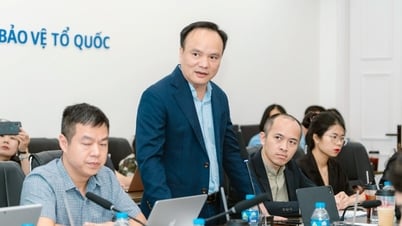

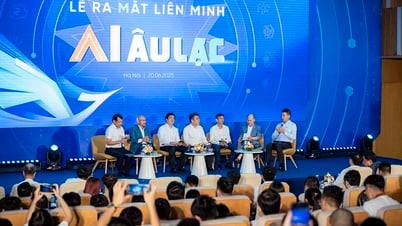


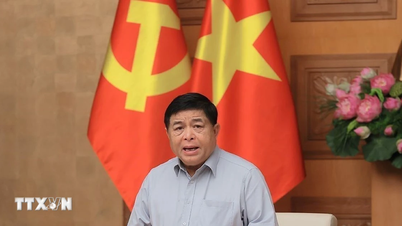

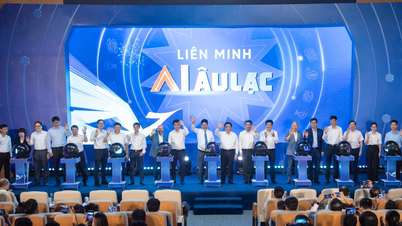
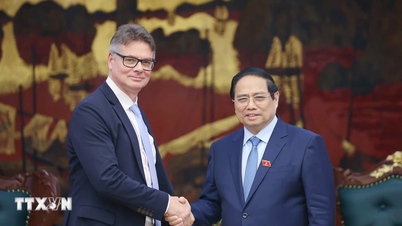





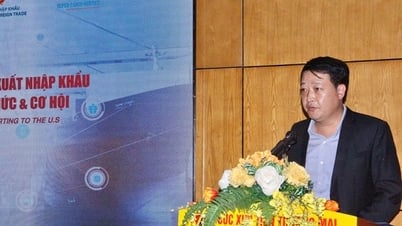
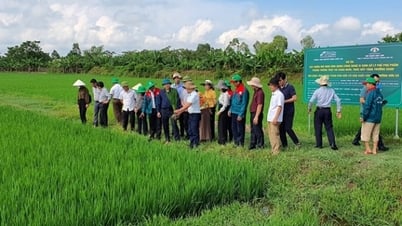

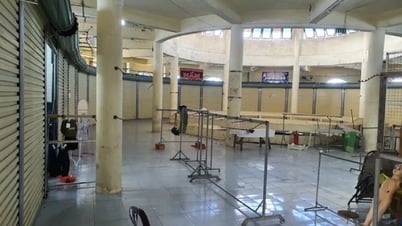

![[Photo] The 9th Congress of the Party Committee of the Office of the President, term 2025-2030](https://vphoto.vietnam.vn/thumb/1200x675/vietnam/resource/IMAGE/2025/6/20/78e7f27e8c4b4edc8859f09572409ad3)












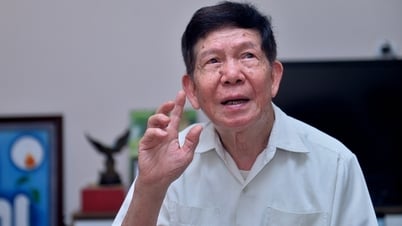














![[Maritime News] Wan Hai Lines invests $150 million to buy 48,000 containers](https://vphoto.vietnam.vn/thumb/402x226/vietnam/resource/IMAGE/2025/6/20/c945a62aff624b4bb5c25e67e9bcc1cb)


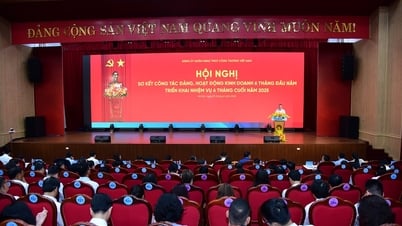





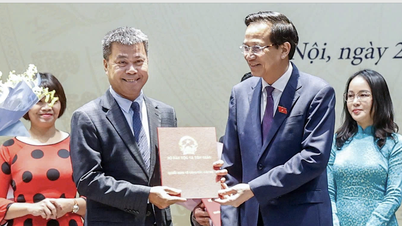
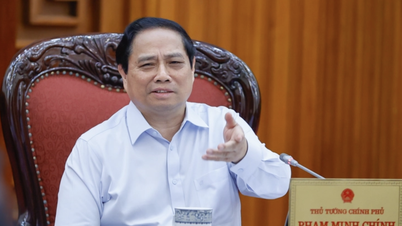



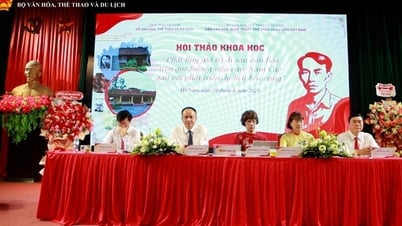
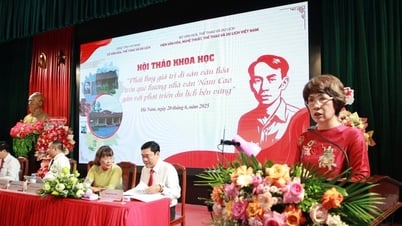

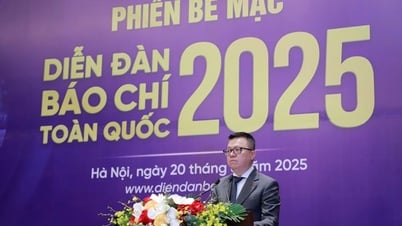







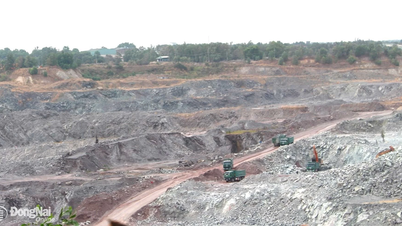
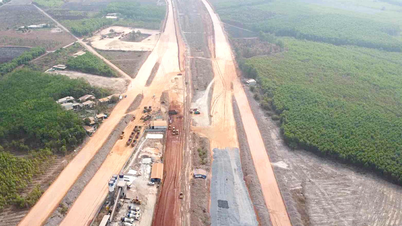
















Comment (0)